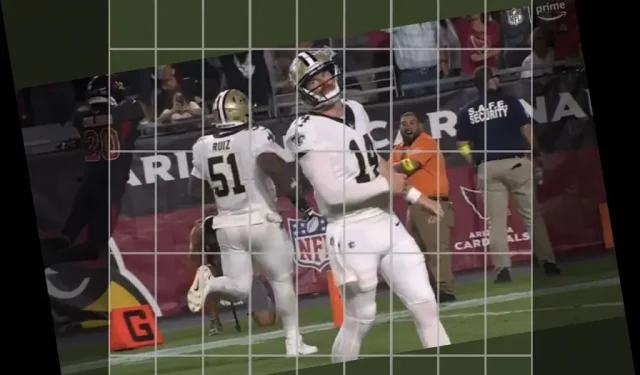If you have a screen recording with distracting UI elements, black borders, and other unnecessary visual effects, Google Photos can help you cut everything out of your video, leaving only the most important.
The Google Photos crop tool also has a rotate feature that can help you skew a video a few degrees to fit the horizon line, rotate a video because you shot it in landscape instead of portrait mode, or change the video’s orientation for dramatic effect., for example when using a Dutch angle to amplify the voltage.
Your smartphone most likely already has built-in tools for cropping and rotating videos, and you can use them if you use these photo/video apps more regularly. There are versions available in Apple Photos for iOS and iPadOS, as well as Samsung Gallery on Galaxy devices, just to name a few. Google Photos is the default photo and video editor on Goole Pixel phones, but it’s also available on other smartphones.
If you prefer Google Photos to other photo/video editors, its crop and rotate tools are easy to use. There is a slight difference between the Android and iOS versions of the Google Photos apps, but the Android app has a few more tweaks you can make.
Login to video editor
Open Google Photos and select the video you want to edit. If the toolbar does not appear immediately, tap the screen to display it. Then click Edit (a button that looks like a set of adjustment sliders). By default, the editor opens the crop tool. If you want to trim the ends of the video a bit before cropping or rotating, move the endpoints inside the timeline to the right places.

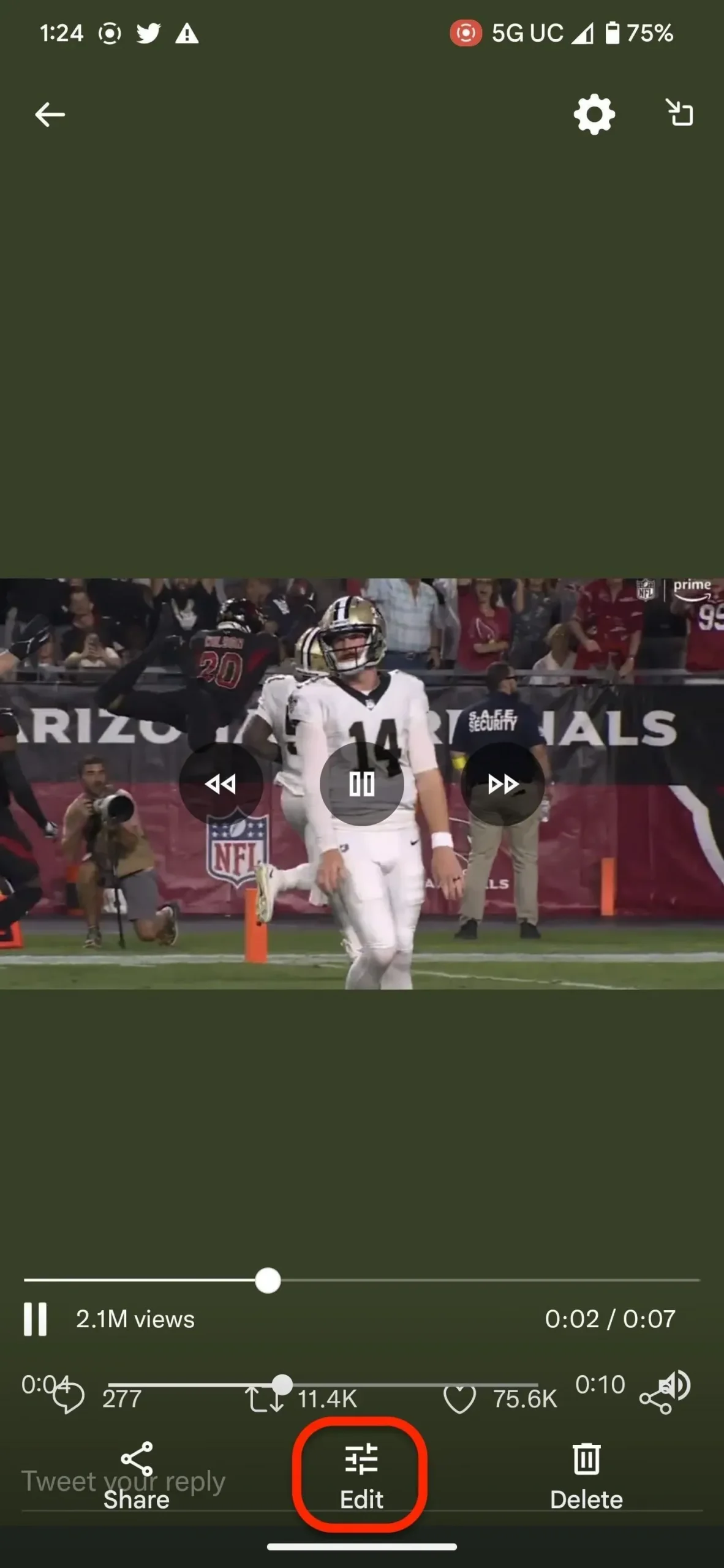
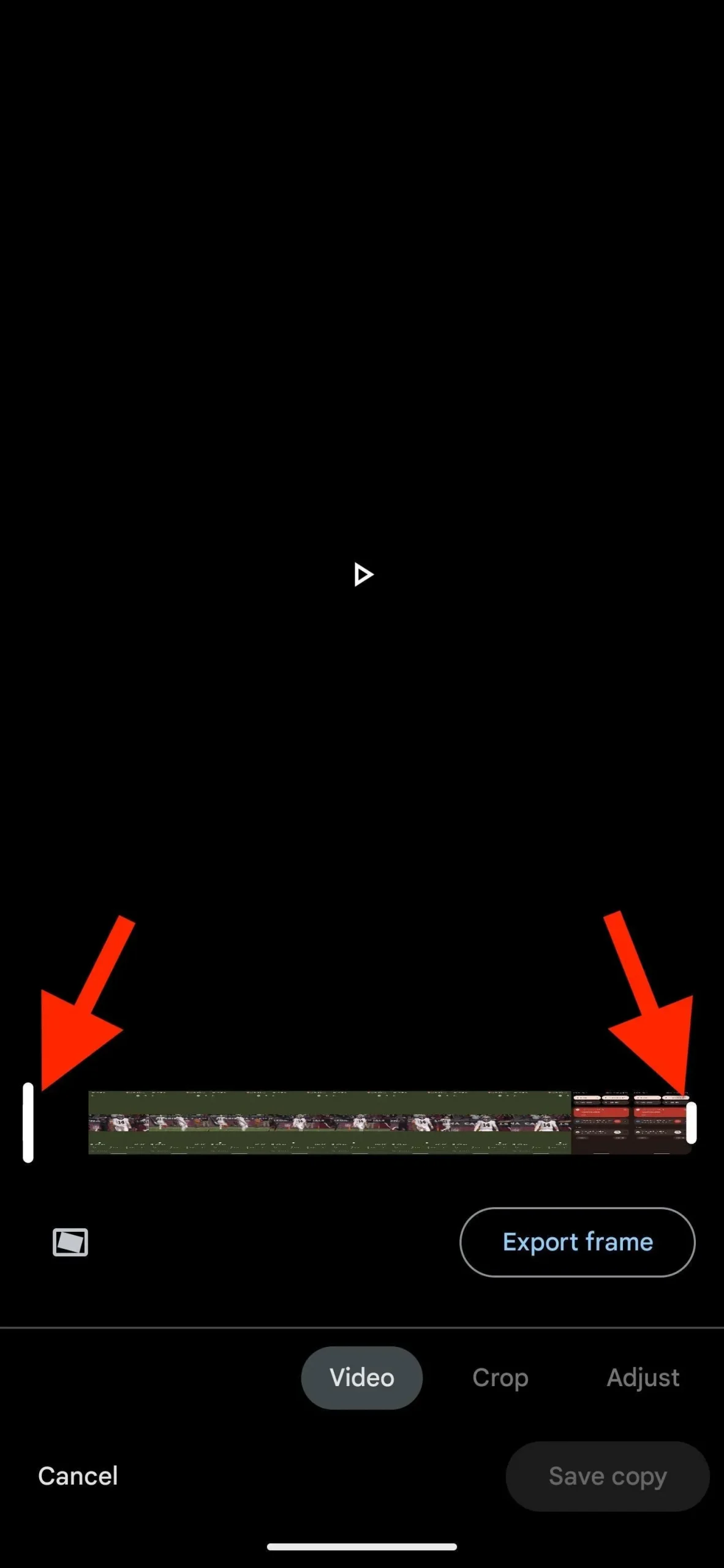
Trimming video
To access the crop and rotate tools, tap or slide “Crop”in the editing options at the bottom. In the preview, you will see four white dots, one in each corner of the video. Touch and drag corners to move them horizontally and/or vertically to where you want to crop. You can also touch and drag the edge of the video to move the crop border horizontally or vertically.
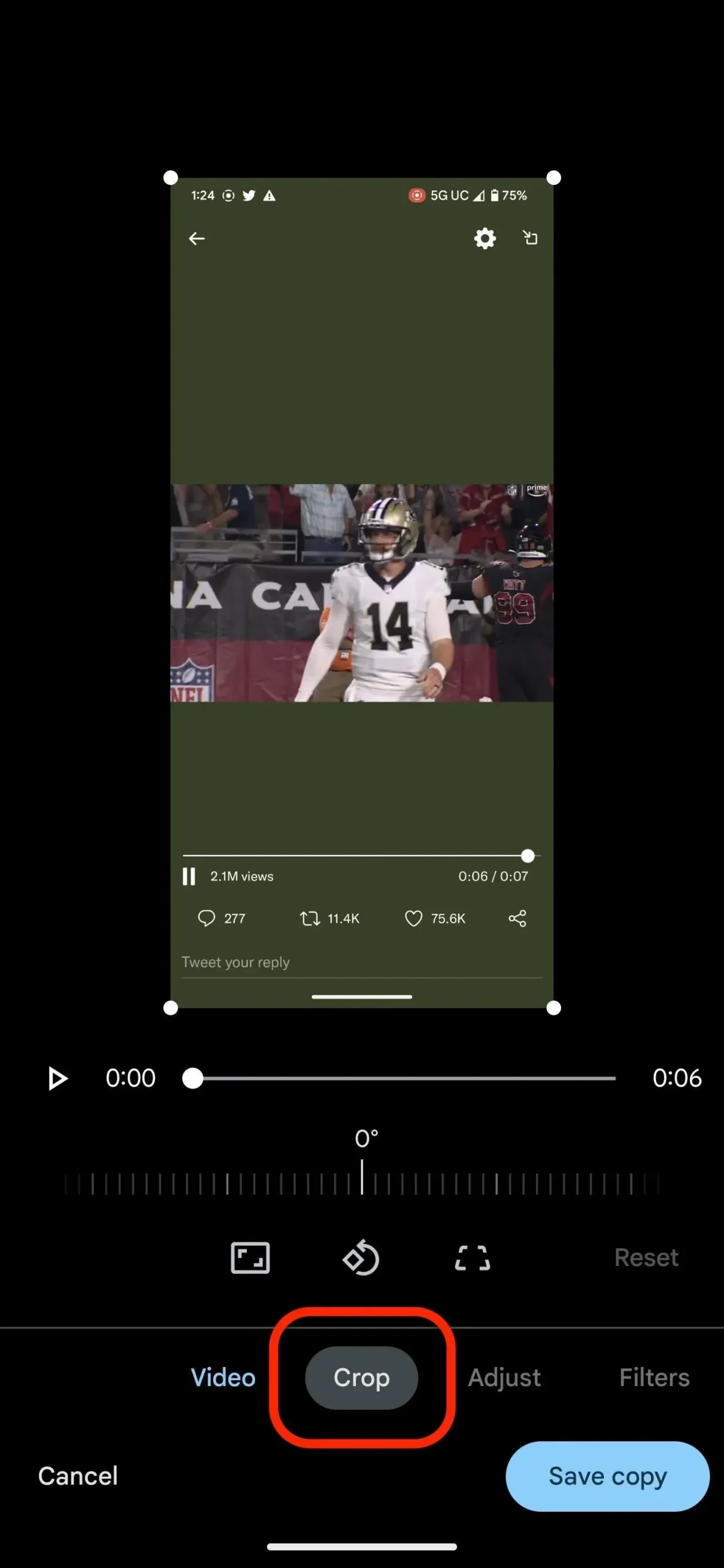
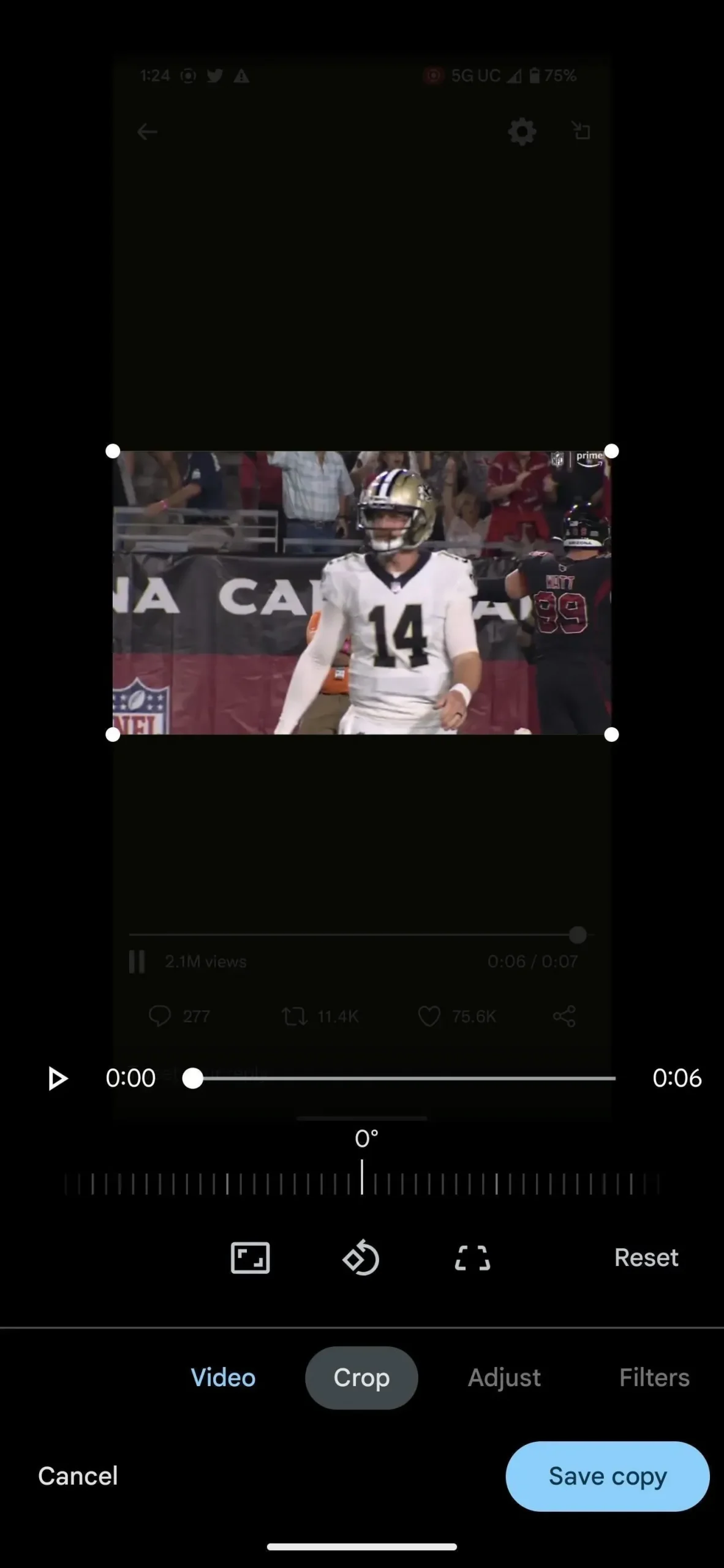
Video rotation
Below the playback controls, you’ll find a tilt adjustment bar that lets you tilt the video in the cropped area between -45 and 45 degrees in one-degree increments. This gives you precise control over the rotation so you can make small adjustments. If you want to rotate the video 90 degrees, click the rotate button below the tilt bar to rotate the video counterclockwise.
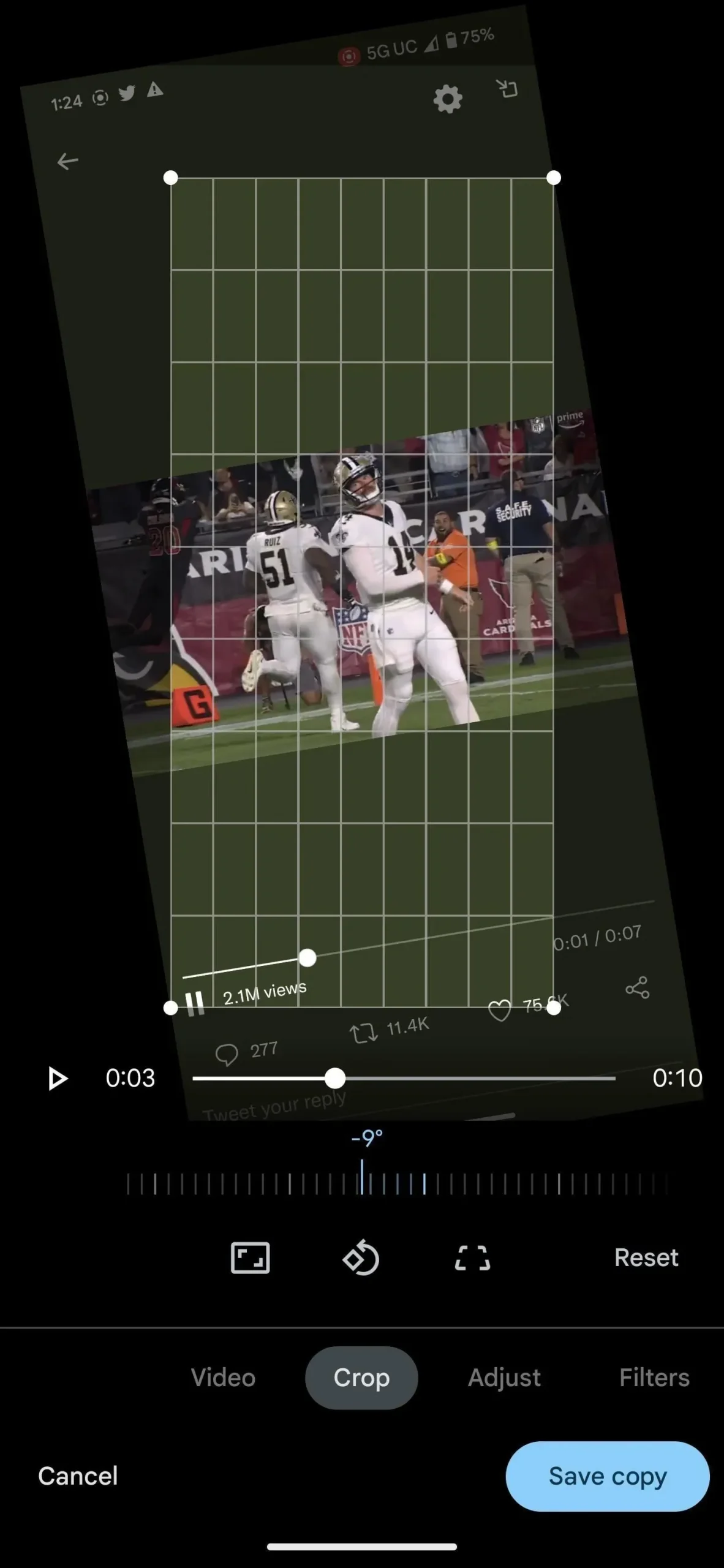
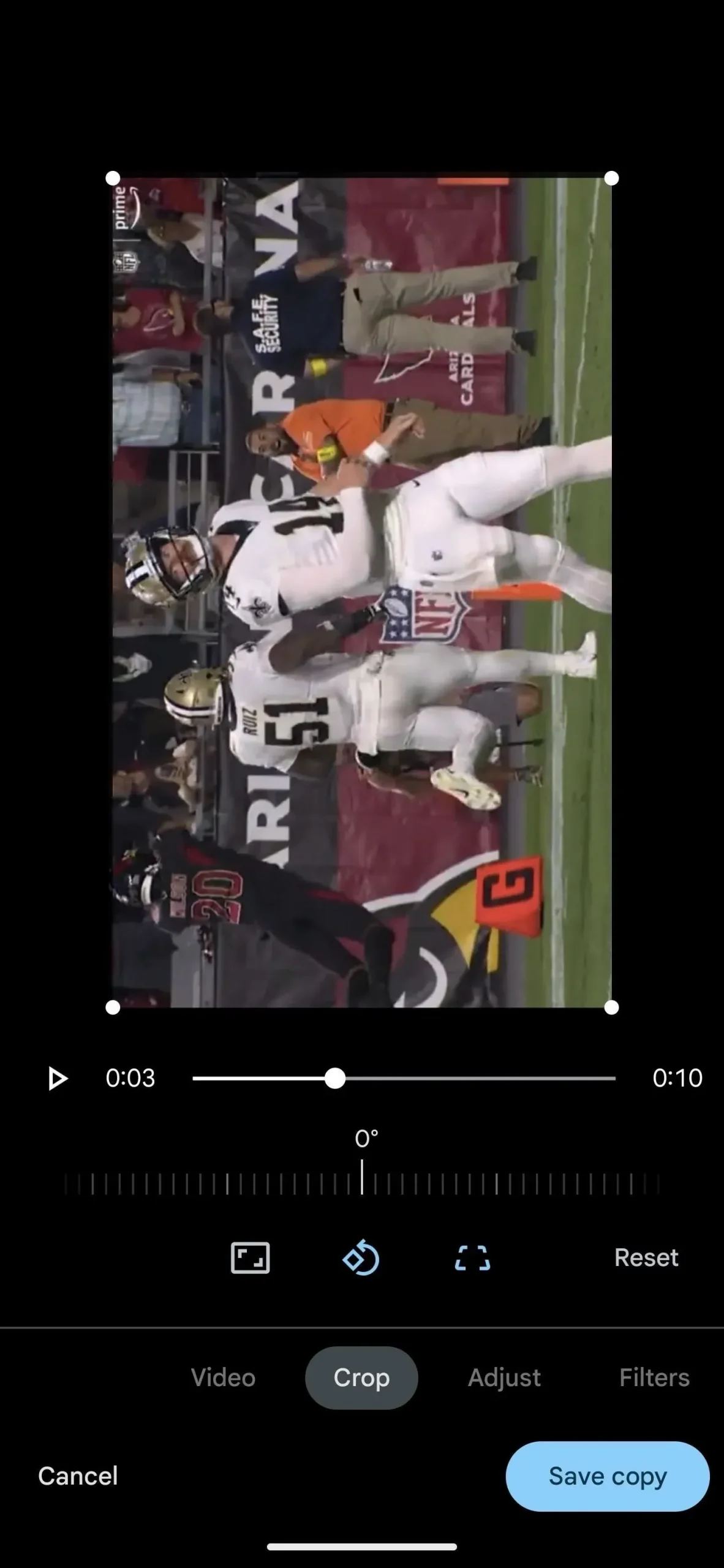
Making other settings
The Crop menu has a few more tricks besides the basic crop, rotate, and skew tools described above. You can also adjust the aspect ratio of the video, skew the image and use the auto-correction option.
- Aspect Ratio Panel: Free is the default preset, which leaves the cropping perimeter free-form, so there are no restrictions. You can fix the cropping perimeter at a specific ratio, such as the video’s original ratio. Other options include 5:4, 4:3, 3:2, 16:9 and vice versa.
- Transform: This Android-only tool allows you to adjust perspective by dragging each corner. You will see an enlarged preview at each point for fine tuning. To see how the video is skewed before saving, press and hold the video preview, which shows the skewed image, until you release. You can use the playback controls to play the video during preview or find a specific frame to use as a reference. Click “Done”to return to the editor. (More information.)
- Reset: If you want to start over with any of the trim settings, click this button. This will not affect any other editors other than those available in the Crop menu.
- Auto: You won’t always see this option, but when Google Photos detects something in the video that it thinks should be straightened, you’ll see “Auto”appear. Clicking on it will automatically rotate the footage in the cropped area. To undo this, click on the “Reset”button mentioned above, or manually adjust the video.
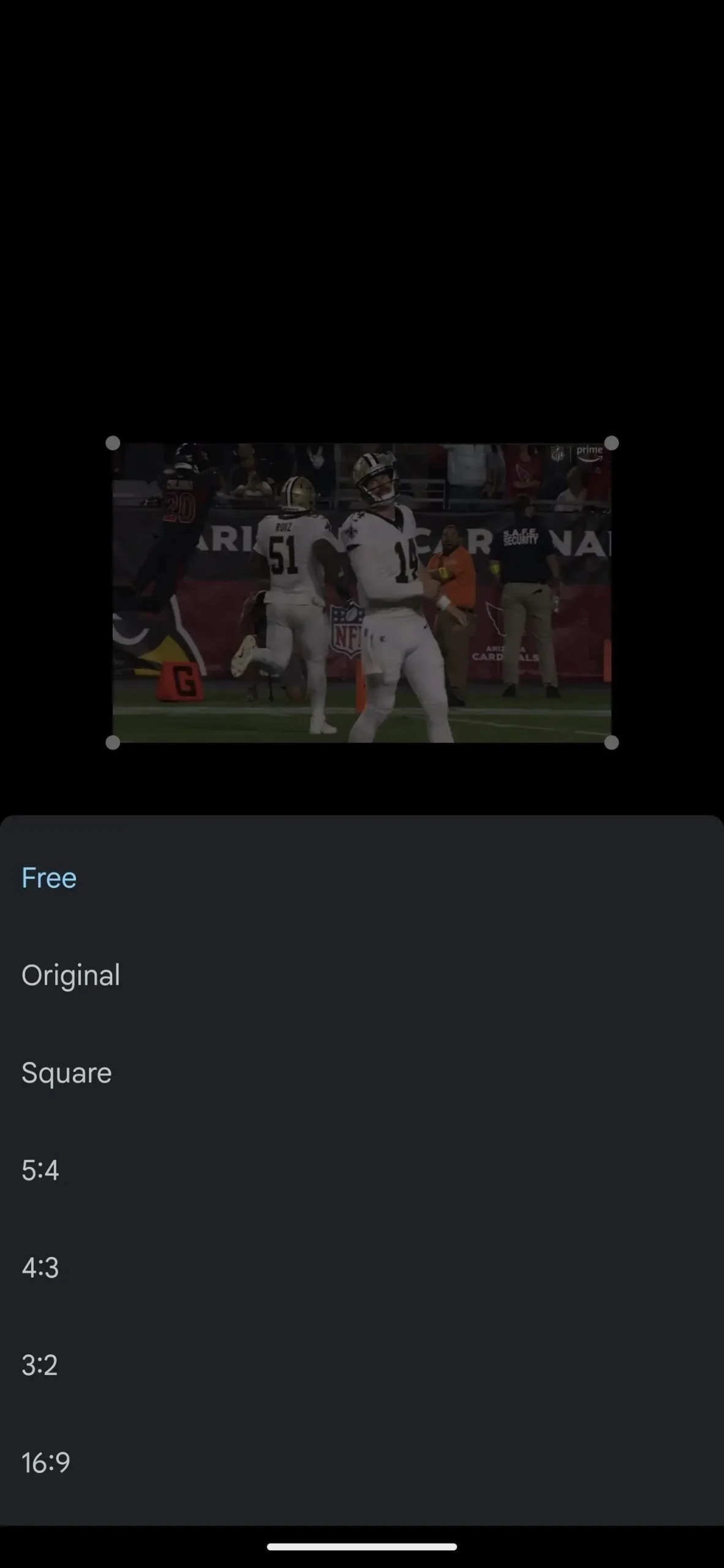
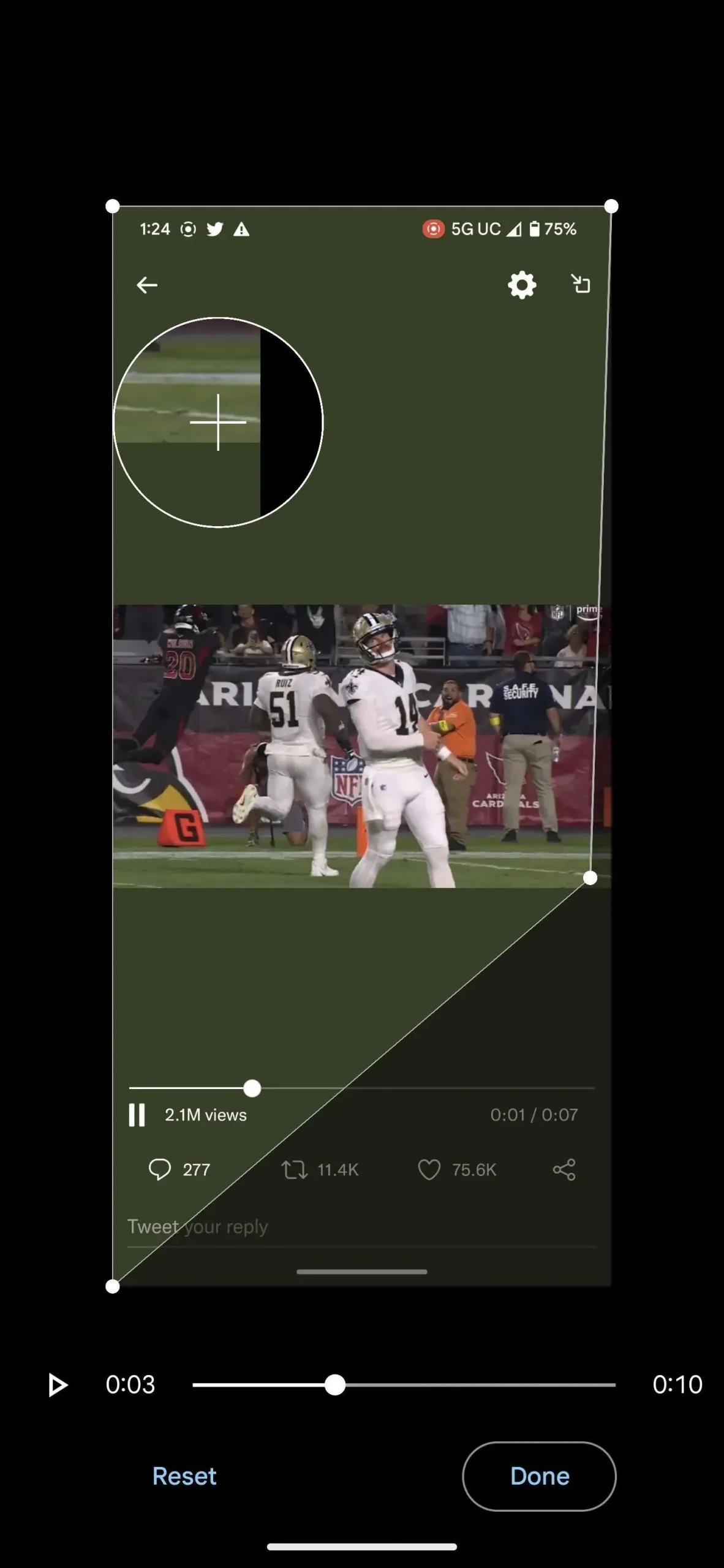
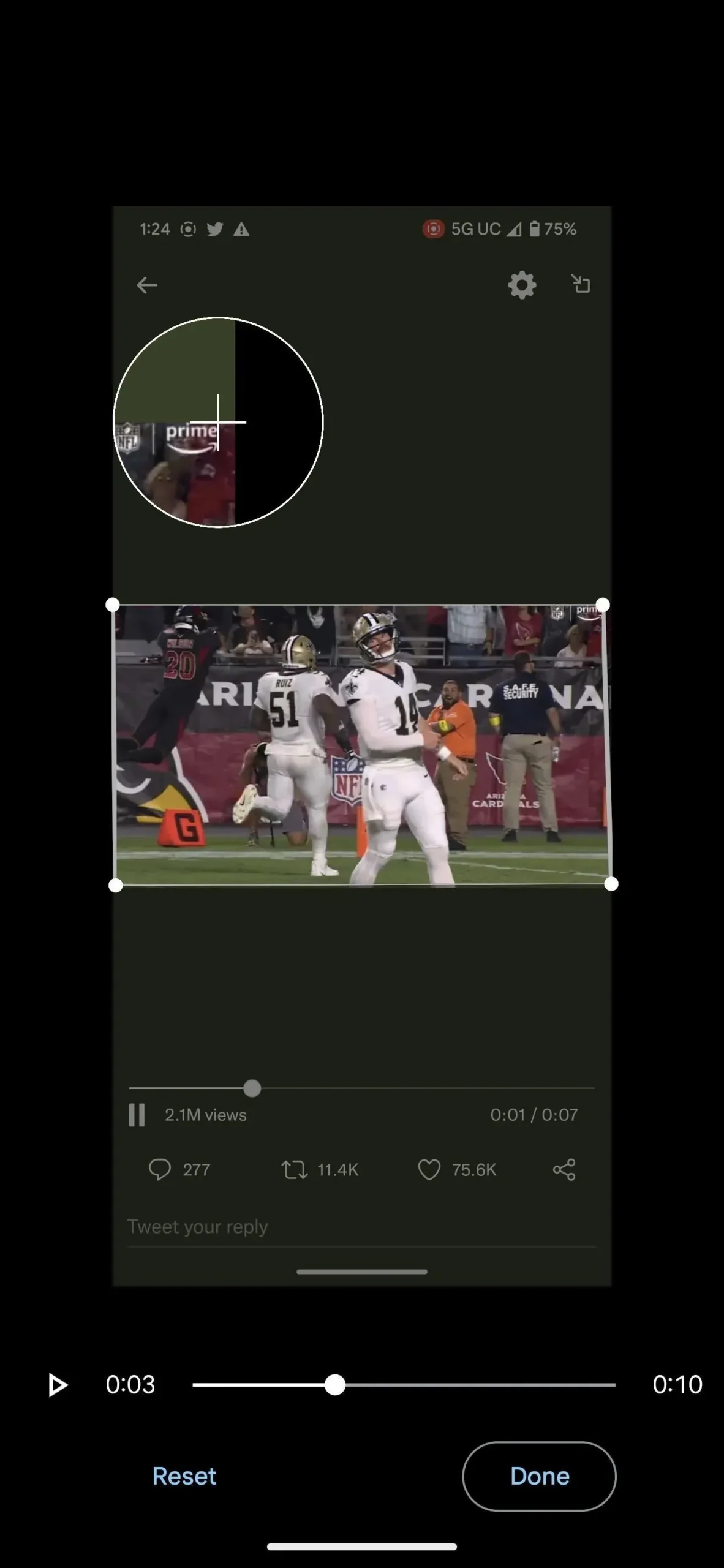
When finished editing, click the “Save a copy”button. Here is the result of the above example where I cut out all unnecessary UI elements.

